10 Best Supplements to Take in the Summer, Doctors Say

Most of the time, your body can get all the vitamins and nutrients it needs through a rich and varied whole foods-based diet. However, if you’re low on one level or another, it can be beneficial to selectively take supplements in the form of pills or powders.
The best way to find out whether or not you should take a supplement is to request a blood test from your doctor to spot deficiencies, but experts say there may be some other overarching signals that it’s time to buff up your regimen. For instance, as the summer brings excessive heat and damaging UV rays, you can assume your skin, eyes, and hair will need a little extra love—as will your gut health, immune system, and more. Read on to learn the top 10 supplements doctors recommend that you take in the summer.
RELATED: The 5 Worst Supplements for Anti-Aging, Doctors Say.
1
Vitamin C
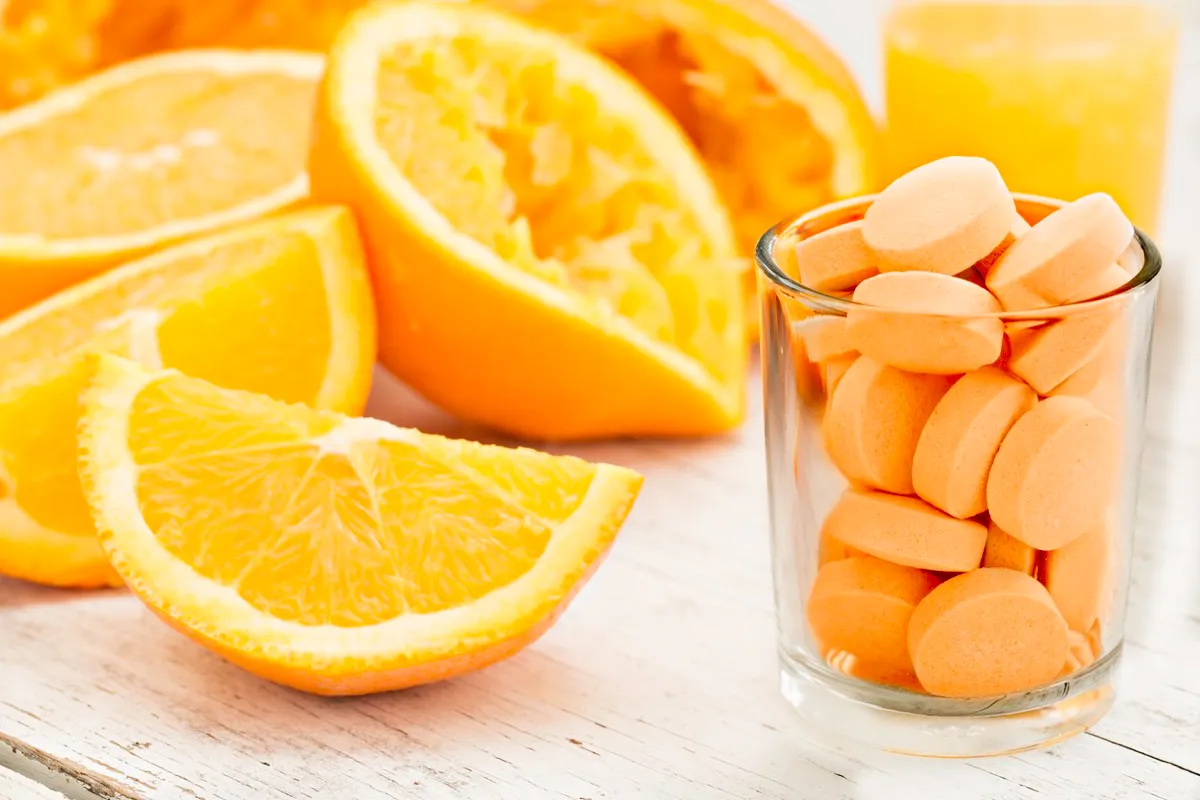
Over the summer months, it’s especially important to protect your skin from the effects of sun damage. Raj Dasgupta, MD, a medical reviewer for NCOA and an ABIM quadruple board-certified physician specializing in internal medicine, pulmonology, critical care, and sleep medicine, says that vitamin C can help you do just that.
“Vitamin C limits the damage induced by ultraviolet (UV) light exposure,” Dasgupta tells Best Life. He explains that while vitamin C is not a ‘sunscreen’ because it does not absorb light in the UVA or UVB spectrum, the antioxidant activity of vitamin C helps protect against UV-induced damage caused by free radicals. (It’s still important to wear a high SPF sunscreen and re-apply every two hours.)
Chris Mohr, PhD, RD, a fitness and nutrition advisor at Fortune Recommends Health, adds that vitamin C supports the immune system, which could come in handy, especially if you’re planning any summer travel.
RELATED: 10 Essential Supplements to Always Travel With.
2
Vitamin E

Vitamin E—an antioxidant with anti-inflammatory properties—is also beneficial for your skin when the sun is blazing. Dasgupta recommends taking it both as a supplement and in its topical form.
“Vitamin E applied topically may add an extra layer of protection to your skin and soothes the post-sunburn sting, leaving your skin feeling nourished and replenished,” he says. “You should get enough vitamin E in your diet through foods, but supplements are also an option—some studies show that internal antioxidants may help protect us from external threats like sun damage.”
3
Omega-3s (fish oil)
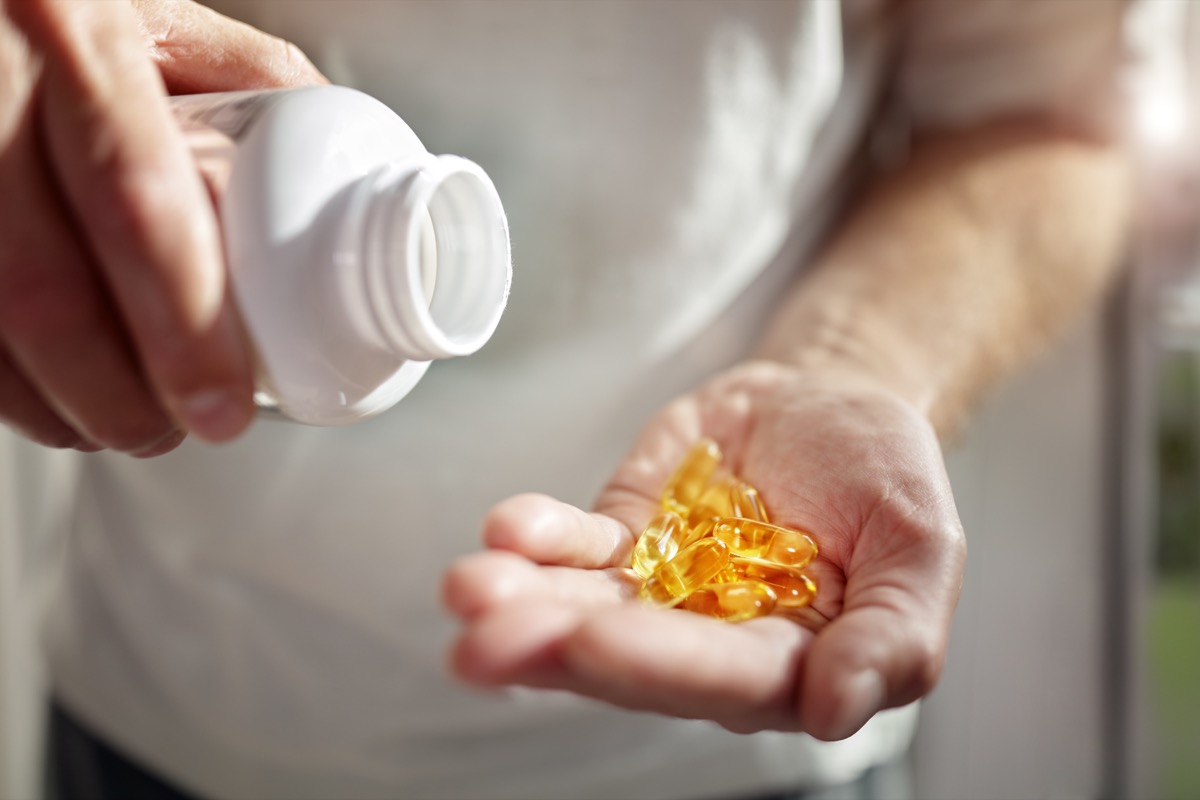
Omega-3 fatty acids tout a wide range of health benefits, including improvements to your brain, heart, and ocular health. Though taking a daily fish oil supplement may be beneficial year-round, it’s especially useful for your skin in the high heat of the summer.
“Omega-3 fatty acids are essential nutrients found in certain foods. They can serve to regulate the skin’s oil production, improve balanced hydration, subdue breakouts, and minimize signs of aging. Omega-3s can also help soften rough, dry skin and have a soothing effect,” Dasgupta says.
Mohr adds that omega-3 fatty acids can help manage inflammation in the body and may play a role in heart and brain health.
“Most data suggests that about two-thirds of adults and up to 95 percent of kids do not consume enough omega-3’s in their diet, so supplementation is warranted,” Mohr notes.
RELATED: 5 Supplements That Can Damage Your Kidneys, Doctors Say.
4
Astaxanthin (AST)
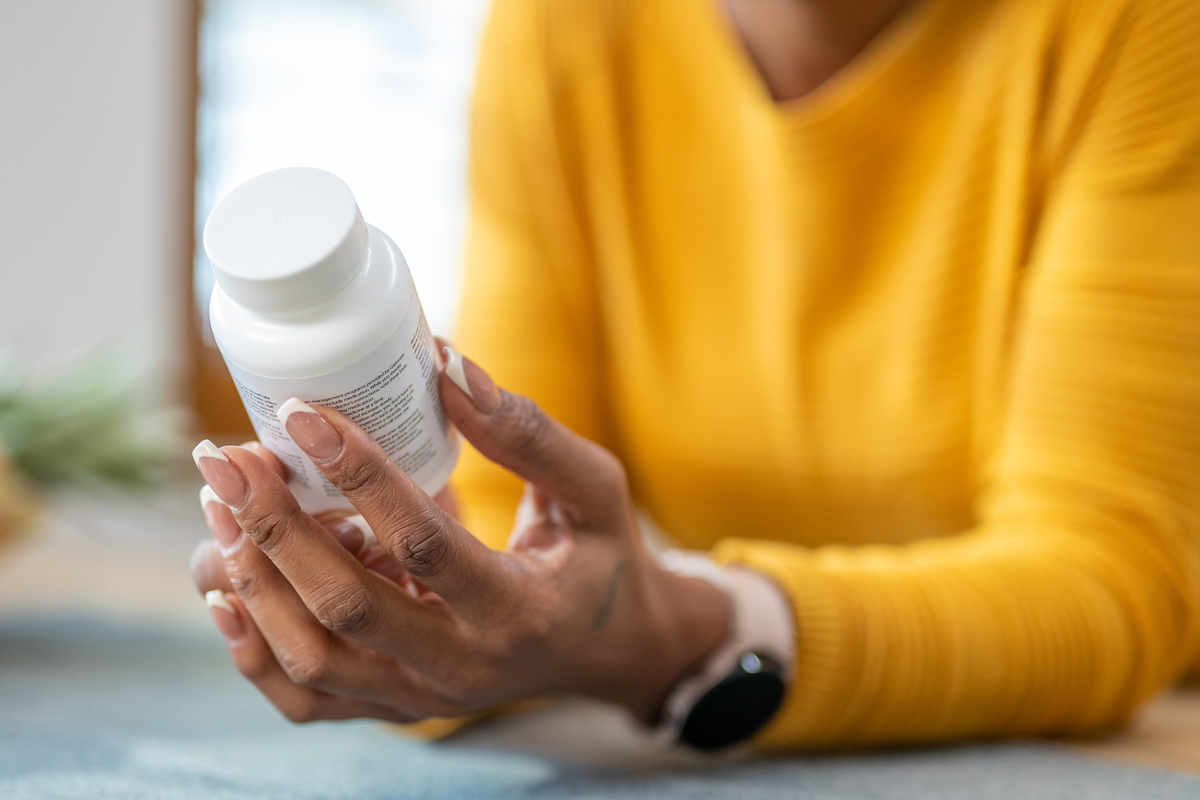
Astaxanthin (AST) is an antioxidant that can protect cells from damage and improve the immune system. According to a 2020 study published in the journal Biomedicines, AST can confer a wide range of “highly potent” pharmacological effects.
“These include protection against UV-induced cell damage and chronic inflammatory diseases, promotion of immunomodulatory activities, alleviation of metabolic syndromes, cardioprotective effects, antidiabetic activity, inhibition of neuronal damage, anti-aging effects on the skin, and anticancer activity as well as the suppression of cell membrane peroxidation,” the study authors write.
Dasgupta adds that Astaxanthin, which can be used topically or orally as a dietary supplement, has several skin benefits. “It can act as an internal sunscreen, giving your skin that extra defense against sun-induced damage and keeping it looking supple and youthful,” he says, again emphasizing that it should not be taken in place of a topical sunscreen.
The researchers behind the study further add that AST improves dermal health by inhibiting inflammation, lowering oxidative stress, and preventing photoaging from the sun. The result? Improved appearance of crow’s feet, enhanced elasticity, reduced transepidermal water loss, and fewer visible signs of sun damage.
5
Probiotics

Gut health is important at every time of year, but it’s a good idea to give it extra safeguards any time your diet changes.
“During the summer, people tend to travel more and have more of a diet change, which can disrupt gut health. Probiotics may help maintain a healthy digestive system by balancing gut bacteria, which is needed for overall health, immune function, and overall well-being,” says Mohr.
RELATED: 4 Best Anti-Inflammatory Supplements, Doctors Say.
6
Electrolytes

Staying hydrated is essential in the summer—and increasing your electrolyte intake can help by maintaining the right fluid balance in your cells and directing water and other nutrients to the parts of your body that need them.
“Electrolytes are essential for keeping you hydrated and energized, making sure you can make the most of those sunny days without feeling drained,” says Dasgupta.
7
Vitamin D
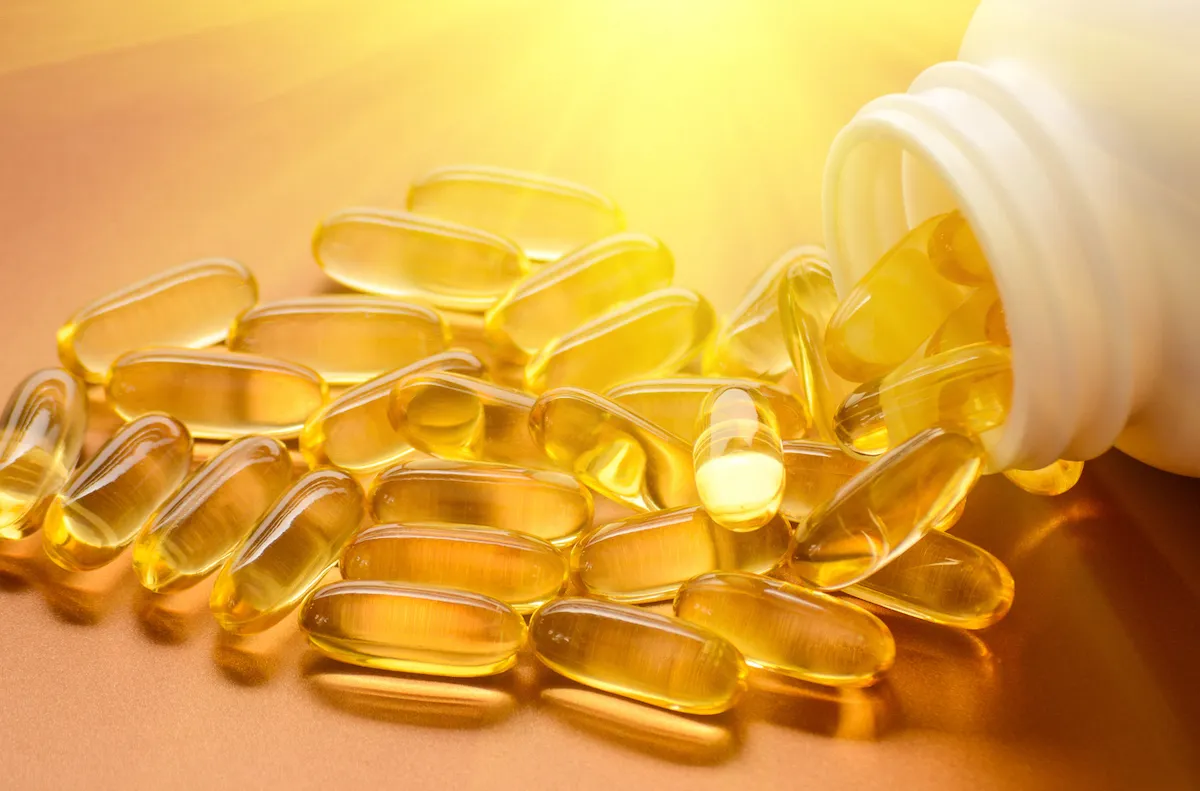
You might assume that you’ll get plenty of vitamin D during the summer, making it unnecessary to take a vitamin D supplement. However, the experts say that if you’re regularly applying sunscreen—and you should be—your levels could still be low.
“Although vitamin D is known as the ‘sunshine vitamin’ because our bodies can produce it when exposed to sunlight, using sunscreen to protect against UV rays can limit vitamin D synthesis,” notes Mohr. “Further, outside of hanging at the beach or a pool, most of your skin is covered up outside of your face and arms, which isn’t much surface area. And that surface area is what needs to be exposed.”
“Because of this, it’s certainly wise to get your levels tested. For most, taking a supplement can help make sure that you’re getting enough, which supports bone health, immune function, and overall well-being,” Mohr explains.
8
Collagen
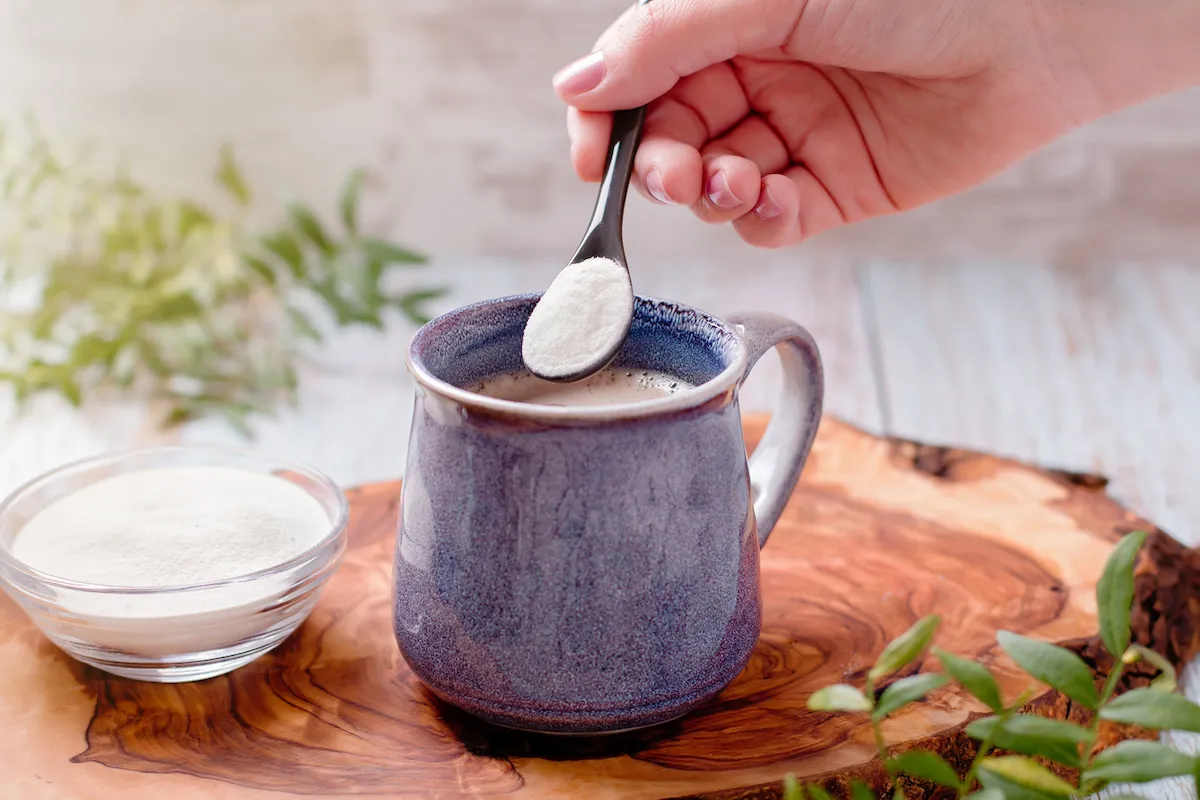
When the sun starts beating down, protecting your skin with collagen can help prevent excessive damage and dryness. “Collagen can be your skin’s best friend, helping to maintain its elasticity and moisture levels,” says Dasgupta.
In fact, a 2022 study in the journal Dermatology Practical & Conceptual says that both oral and topical collagen can help reduce and delay skin aging.
“The evidence from the reviewed studies suggested that both collagen supplements improve skin moisture, elasticity, and hydration when orally administered. Additionally, collagen reduces the wrinkling and roughness of the skin, and existing studies have not found any side effects of its oral supplements,” the researchers write.
RELATED: 12 Supplements You Should Never Take Together, Medical Experts Say.
9
Beta-carotene
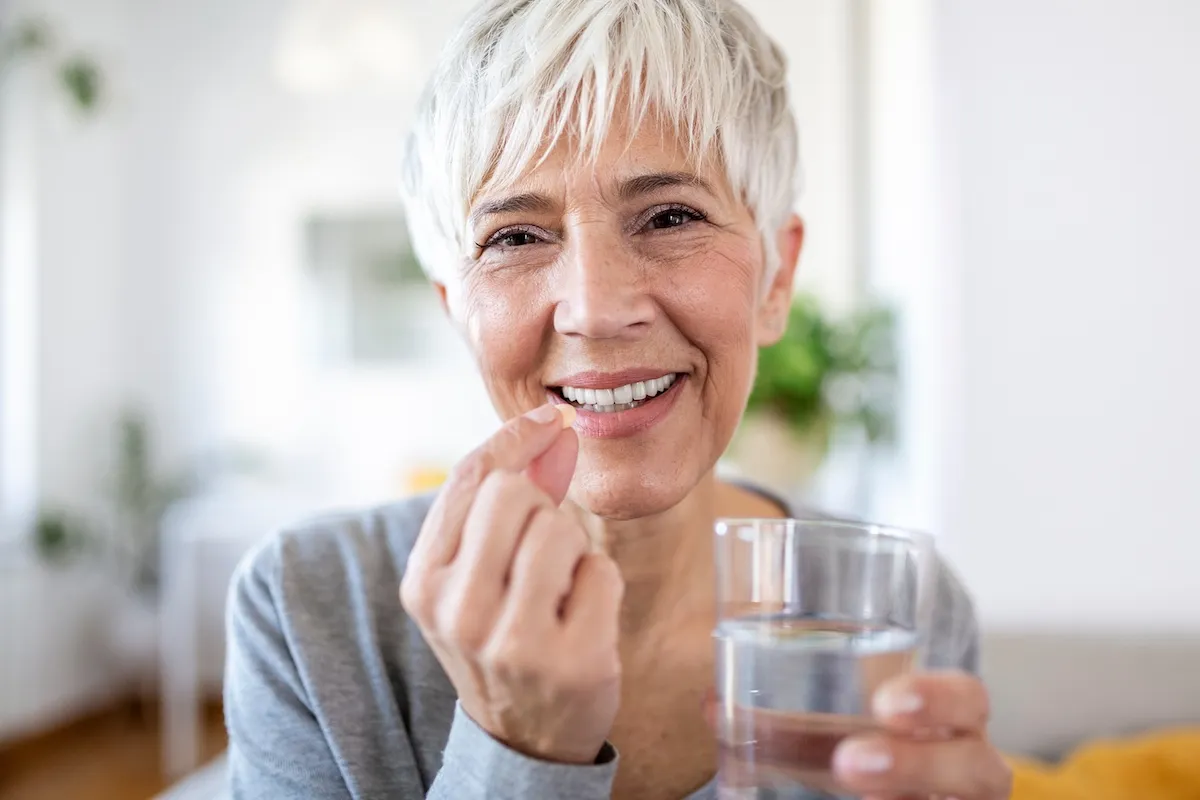
It’s not just your skin that can suffer under the sun’s rays—they can also deal damage to your eyes. That’s why Dasgupta recommends taking beta-carotene supplements in the summer, noting that both your skin and eyes stand to benefit by lowering your levels of oxidative stress.
You can also get ample beta-carotene from a range of summer foods, including peppers, carrots, leafy greens, berries, and broccoli.
10
Zinc
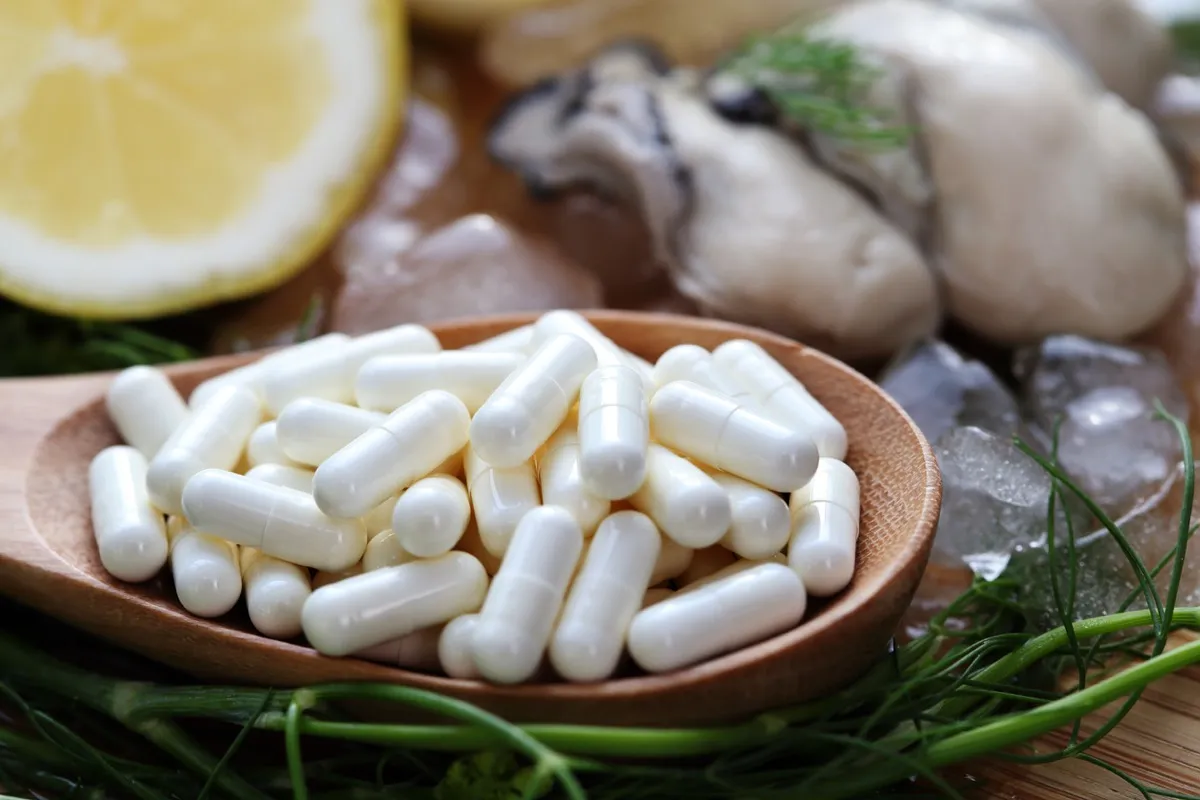
“Zinc supports skin health and immune function. It can be helpful in healing, especially with outdoor-related scratches and cuts, and may also help protect your skin from UV damage. In fact, it’s also a key mineral in sunblock to help further protect from UV rays,” says Mohr.
However, experts from Harvard Health Publishing note that high doses of supplemental zinc can cause nausea and even vomiting, so you shouldn’t take supplemental zinc unless your diet is known to be low in zinc or your doctor has confirmed a zinc deficiency. Speak with your doctor before beginning any new supplement regimen this summer.
Best Life offers the most up-to-date information from top experts, new research, and health agencies, but our content is not meant to be a substitute for professional guidance. When it comes to the medication you’re taking or any other health questions you have, always consult your healthcare provider directly.
- Source: Biomedicines: Protective Effects of Astaxanthin Supplementation against Ultraviolet-Induced Photoaging in Hairless Mice
- Source: Dermatology Practical & Conceptual: Collagen Supplements for Aging and Wrinkles: A Paradigm Shift in the Fields of Dermatology and Cosmetics
- Source: Harvard Health Publishing: Zinc